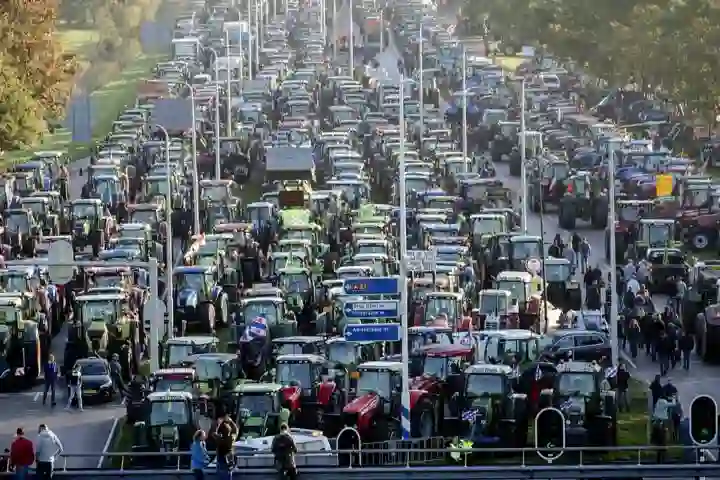Amid the ongoing Russia-Ukraine war which has already pushed up food and fuel prices, Europe’s farmers have launched massive protests as several countries in the continent push for organic farming and support the ‘Farm to Fork’ strategy.
Last month, the Netherlands announced plans for a 22 billion Euro programme to cut nitrogen and ammonia emissions by 50-70 per cent nationwide by 2030, to comply with European Union regulations on nitrate pollution.
The Dutch governments said that it was an “unavoidable transition,” especially after courts in recent years began blocking permits for infrastructure and housing projects because the country was missing its emissions targets, Euronews said. Responding to the protestors, Dutch Prime Minister Mark Rutte defended the “new plan”, citing that there is a “limit to what a government can do” to help people amid rising inflation.
But angry farmers used their tractors to block roads and ports. They also drove onto the field. According to Euronews, a banner in Dutch read, “We can no longer be stopped.”
Soon after the protests in the Netherlands, farmers from Germany, Poland Italy and Spain among others too took to the streets to register their discontent.
“It is completely incomprehensible that in the middle of this far-reaching energy crisis, a sustainable domestic energy source such as biogas is being curbed in the production of electricity, heat, and biomethane,” the Deep Dive, an analysis firm, quoted Bernhard Krüsken, secretary-general of the German Farmers’ Association as saying.
In an apparent move to pacify the farmers, the EU parliament issued a resolution denouncing India’s “distorting” sugar subsidies, citing it to be against the World Trade Organisation (WTO) agriculture agreement and detrimental to the EU sugar producer.
Though the resolution tried to offer some relief to the European sugar industry, which has been complaining against Indian sugar subsidies, calling it as anticompetitive and unfair, there has been no easing in the protests.
Earlier the European Commission underlined the need to redesign the food system. It said that the existing system accounts for nearly one-third of global GHG emissions, consume large amounts of natural resources, result in biodiversity loss and negative health impacts (due to both under- and over-nutrition) and do not allow fair economic returns and livelihoods for all actors, in particular for primary producers.
Also read: The Ukraine war shapes a new world order – unipolarity crumbles to give way to multipolarity—Part 2
EU reeling under high inflation as Ukraine war takes its toll




















